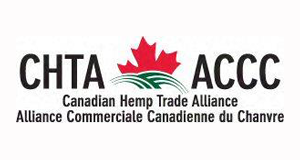
Canadian Hemp Trade Alliance: The Time for Medical Hemp Is Now

Press Release: June 7, 2016, 2:27 PM Ι SOURCE: Canadian Hemp Trade Alliance
WINNIPEG, MB--(Marketwired - June 07, 2016) - Canadians could choose medical hemp for clinical therapies once Health Canada modernizes its Industrial Hemp Regulations, according to the Canadian Hemp Trade Alliance (CHTA).
"Hemp could serve as a Canadian medicinal health product because it contains cannabidiol (CBD) but almost no THC, the psychoactive component," says Kim Shukla, Executive Director, CHTA. "Ironically, today Canadians who need the beneficial cannabinoids to treat medical conditions only have recourse to marijuana, while these components of our hemp crops are being left to waste in Canadian fields."
"Hemp farmers want the option to harvest their entire crop and explore the opportunity for the whole plant, including cannabinoids such as Cannabidiol (CBD)," adds Shukla. "New research continues to build the mounting body of evidence that CBD can have positive health effects, such as alleviating schizophrenia-related symptoms."
This situation is particularly poignant in the case of childhood epilepsy, for which high CBD is proving to be an effective treatment. There is a growing body of clinical research demonstrating its potential therapeutic uses. There are high levels of CBD in hemp and hemp does not have the psycho-activity that is prevalent in medical marijuana. The psycho-active THC is a concern for parents of children with epilepsy wanting access to CBD.
Dr. Steven Laviolette, University of Western Ontario says, "Increasing research is showing that CBD not only serves as an effective treatment option for several serious brain disorders including epilepsy and schizophrenia, we now know that CBD actually counteracts many of the negative effects associated with THC."
Right now, the cost to patients of high CBD cannabis is equivalent to high THC marijuana as it is being grown in the same high security facilities. Allowing hemp farmers to harvest CBD from their crops would radically reduce the cost to patients.
"In Canada today, hemp can only be harvested for grain and fibre," adds Shukla. "So farmers have to incorporate the CBD-rich hemp chaff, the leaves and flower parts, into the soil and waste it. In countries where it can be harvested, it is processed into products like CBD oil."
The Canadian hemp industry is young, but strong. Canada is now the largest exporter of industrial hemp worldwide with an estimated export value in 2020 of $142 million.
Now, internationally, Canadian hemp farmers stand to lose ground in their market position to competitors who are currently working to de-regulate and gain market share. According to Shukla, "Some European countries and American states have already made changes to their regulations to permit whole-plant use, but Canada's Industrial Hemp Regulations have not changed since they were adopted in 1998."
In early May, CHTA provided a position paper to Health Canada, including a legal basis for Canada to allow whole-plant hemp use without contravening any international conventions.
"We are cautiously optimistic that the new Federal Government stance on marijuana legislation will have a timely, positive effect on Health Canada's Industrial Hemp Regulations," says Shukla. "We would be pleased to work with Health Canada on solutions that meet their requirements for oversight and regulation and allow us to offer our superior product options to Canadian and International consumers."
Details of the CHTA Position Paper can be found at www.hemptrade.ca.
Contact Information
For hemp farm visuals and local CHTA interviews across Canada, contact:
Kim Shukla
Executive Director
CHTA
ph: 204-326-9542
email: info@hemptrade.ca